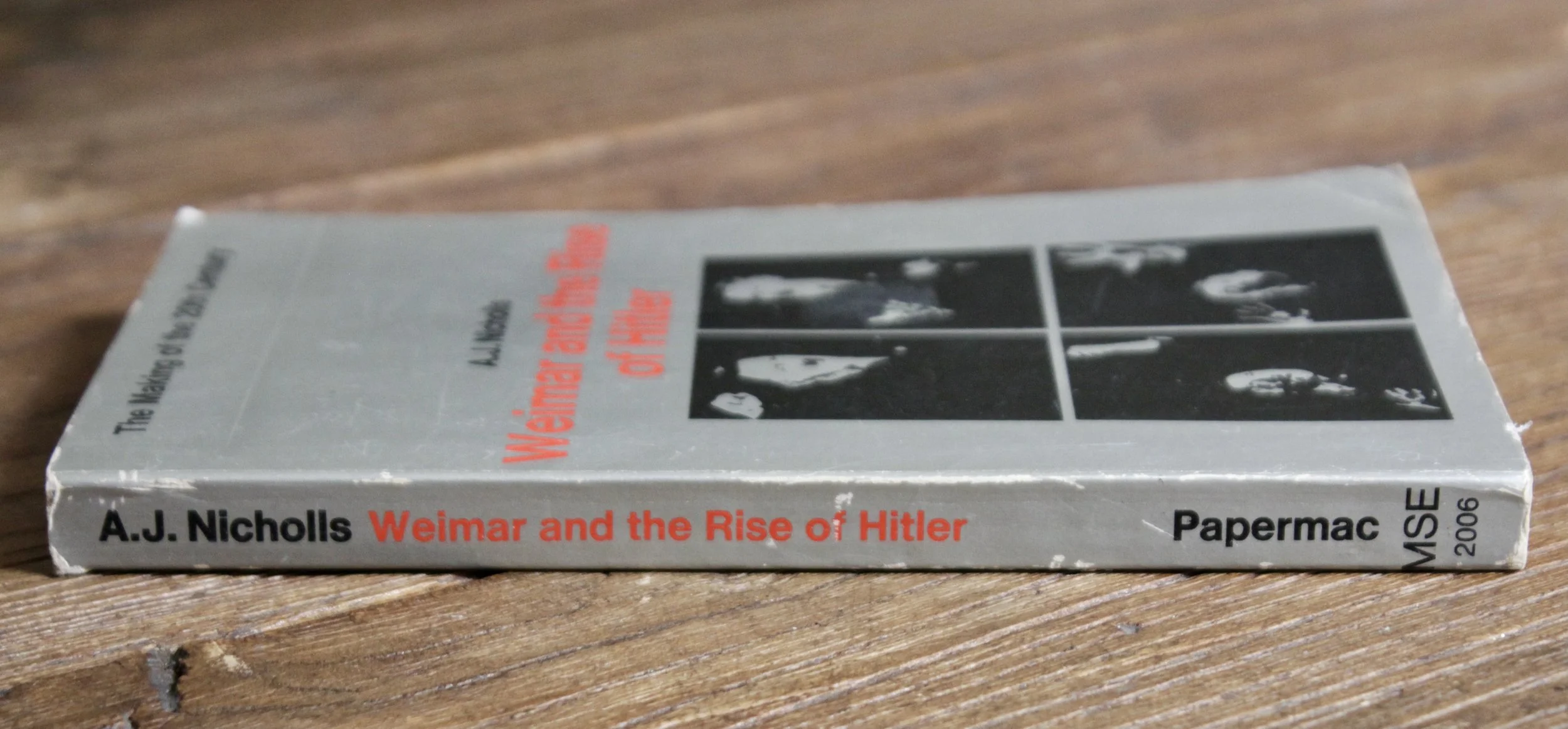 Image 1 of 3
Image 1 of 3

 Image 2 of 3
Image 2 of 3

 Image 3 of 3
Image 3 of 3




Weimar and the Rise of Hitler by A J Nicholls
Condition: Good vintage condition. Some light wear to the cover - rubbing/creases a few light folds. Pages are good, a little yellowing and some page corner folds in places.
Notes: Vintage 1970 paperback. This account of the Weimar Republic's history begins with Germany's defeat in 1918 and the revolutionary disturbances which followed the collapse of Kaiser Wilhelm II's empire. It analyses the structure of the Republic, noting the strengths and weaknesses of the new regime. It evaluates the importance of inflation in the early 1920s and depression after 1929. Adolf Hitler's career is traced from its early beginnings in Munich, and the nature of his movement is assessed. Although giving due weight to economic and social factors, the author remains convinced that political rather than economic causes lay at the root of Weimar's failure. It was the political legacy of the Wilhelmine Empire which was to prove so damaging to the Weimar Republic in the years 1918-1933.". "The book is designed to serve both as an introduction for readers unfamiliar with the Weimar Republic and as a stimulus for those who wish to deepen their knowledge of the period.
Condition: Good vintage condition. Some light wear to the cover - rubbing/creases a few light folds. Pages are good, a little yellowing and some page corner folds in places.
Notes: Vintage 1970 paperback. This account of the Weimar Republic's history begins with Germany's defeat in 1918 and the revolutionary disturbances which followed the collapse of Kaiser Wilhelm II's empire. It analyses the structure of the Republic, noting the strengths and weaknesses of the new regime. It evaluates the importance of inflation in the early 1920s and depression after 1929. Adolf Hitler's career is traced from its early beginnings in Munich, and the nature of his movement is assessed. Although giving due weight to economic and social factors, the author remains convinced that political rather than economic causes lay at the root of Weimar's failure. It was the political legacy of the Wilhelmine Empire which was to prove so damaging to the Weimar Republic in the years 1918-1933.". "The book is designed to serve both as an introduction for readers unfamiliar with the Weimar Republic and as a stimulus for those who wish to deepen their knowledge of the period.
Condition: Good vintage condition. Some light wear to the cover - rubbing/creases a few light folds. Pages are good, a little yellowing and some page corner folds in places.
Notes: Vintage 1970 paperback. This account of the Weimar Republic's history begins with Germany's defeat in 1918 and the revolutionary disturbances which followed the collapse of Kaiser Wilhelm II's empire. It analyses the structure of the Republic, noting the strengths and weaknesses of the new regime. It evaluates the importance of inflation in the early 1920s and depression after 1929. Adolf Hitler's career is traced from its early beginnings in Munich, and the nature of his movement is assessed. Although giving due weight to economic and social factors, the author remains convinced that political rather than economic causes lay at the root of Weimar's failure. It was the political legacy of the Wilhelmine Empire which was to prove so damaging to the Weimar Republic in the years 1918-1933.". "The book is designed to serve both as an introduction for readers unfamiliar with the Weimar Republic and as a stimulus for those who wish to deepen their knowledge of the period.

